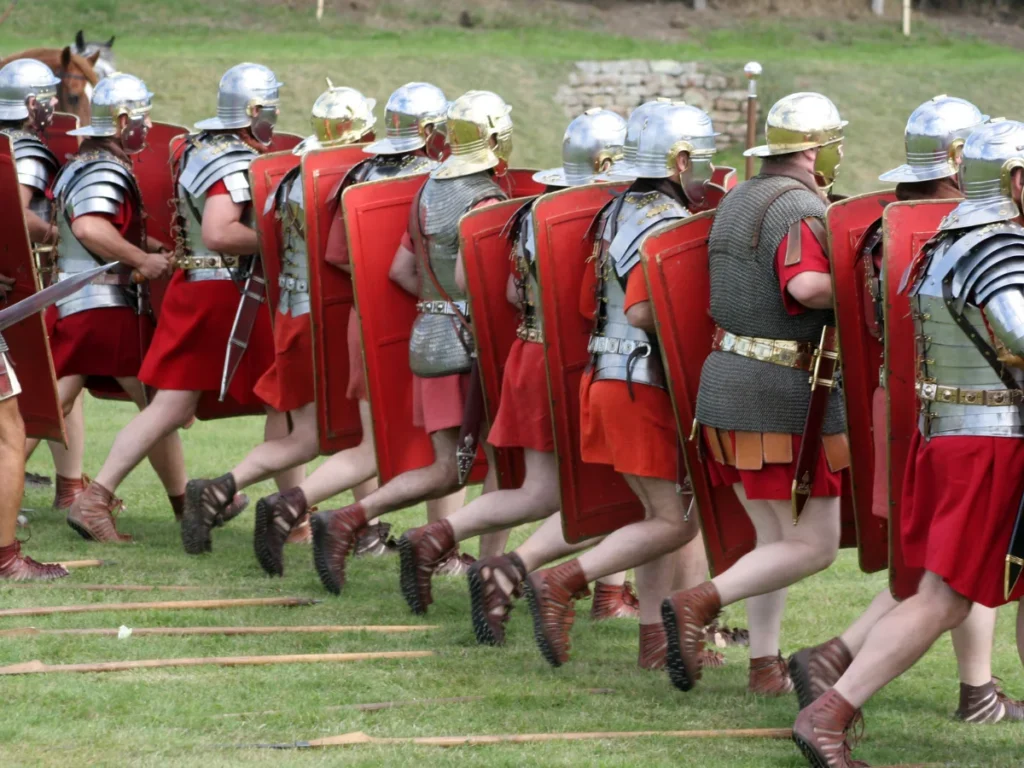The Roman battle of Philippi
The Roman battle of Philippi, was a critical conflict in 42 BCE. It marked the culmination of a power struggle between the Second Triumvirate, led by Octavian and Mark Antony, and the senatorial faction, represented by Brutus and Cassius. Cleopatra’s involvement added intrigue, and her resources were instrumental. This battle, with its dual phases, ultimately secured victory for the Triumvirate, shaping the Roman Empire’s future and foreshadowing the end of the Roman Republic.

The Roman battle of Philippi
The Prelude to the Battle of Philippi
The Battle of Philippi was a significant conflict in ancient history. It occurred in 42 BCE between the forces of the Roman Republic and the forces loyal to the Second Triumvirate, composed of Octavian, Mark Antony, and Marcus Aemilius Lepidus. This pivotal battle was the culmination of a series of events and rivalries that had been escalating in the Roman world.
The Rivalry and Conflict
The seeds of the Battle of Philippi were sown in the power struggle that followed the assassination of Julius Caesar in 44 BCE. Mark Antony, Caesar’s ally, and Octavian, Caesar’s adopted son and heir, found themselves in opposing factions vying for control of Rome. To solidify their positions, Antony formed a political alliance with Cleopatra, the Queen of Egypt, which fueled tensions further.
The Role of Cleopatra
Cleopatra’s involvement in the conflict was multifaceted. As the Queen of Egypt, she sought to maintain her kingdom’s stability and expand her influence in the Roman world. Her romantic involvement with both Julius Caesar and Mark Antony added a layer of complexity to the political landscape. Cleopatra’s strategic support and resources were essential in Antony’s bid for power and the subsequent conflict against Octavian.
The Battle and Its Strategies
The Battle of Philippi took place in the Macedonian city of Philippi, which was named after Philip II of Macedon, father of Alexander the Great. The city held strategic importance due to its location on the Via Egnatia, a vital Roman road connecting the eastern and western parts of the empire. The battle unfolded in two phases. The first in October 42 BCE and the second in the same year in December.
The forces of the Second Triumvirate employed various military strategies during the battle. Octavian and Antony’s legions clashed with the army of Brutus and Cassius, two prominent senators and leaders of the senatorial faction. The conflict was marked by fierce infantry battles, with both sides employing legions and cavalry.
The Consequences and Legacy
The Battle of Philippi resulted in victory for the Second Triumvirate, securing their control over Rome. The defeated Brutus and Cassius both committed suicide after their defeat, marking the end of the senatorial faction’s resistance. Octavian and Antony subsequently divided the Roman Republic’s territories, with Octavian taking the western provinces and Antony the eastern ones. Cleopatra’s role in the conflict further tied her fate to Antony’s, eventually leading to their defeat at the Battle of Actium in 31 BCE.
The Battle of Philippi played a pivotal role in the transition from the Roman Republic to the Roman Empire. Octavian, later known as Emperor Augustus, emerged as the sole ruler of Rome, leading to the establishment of the principate. The battle marked the decline of the Roman Republic’s traditional republican institutions and the rise of the imperial system that would shape the future of the Roman world for centuries to come.
More History

Women in ancient Greece
Women in ancient Greece had limited rights, confined to domestic roles. Some exceptions emerged, like Spartan women, who enjoyed more freedom.

Traditional music and instruments
Traditional Greek music features lively melodies and instruments like the bouzouki and lyre. These musical traditions have deep cultural roots.

Tomb of Philip II of Macedon
The Tomb of Philip II houses the remains of the influential Macedonian king. It stands as a testament to his significance in ancient Greek history.
